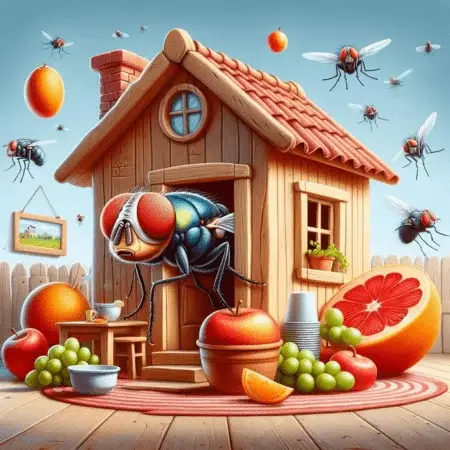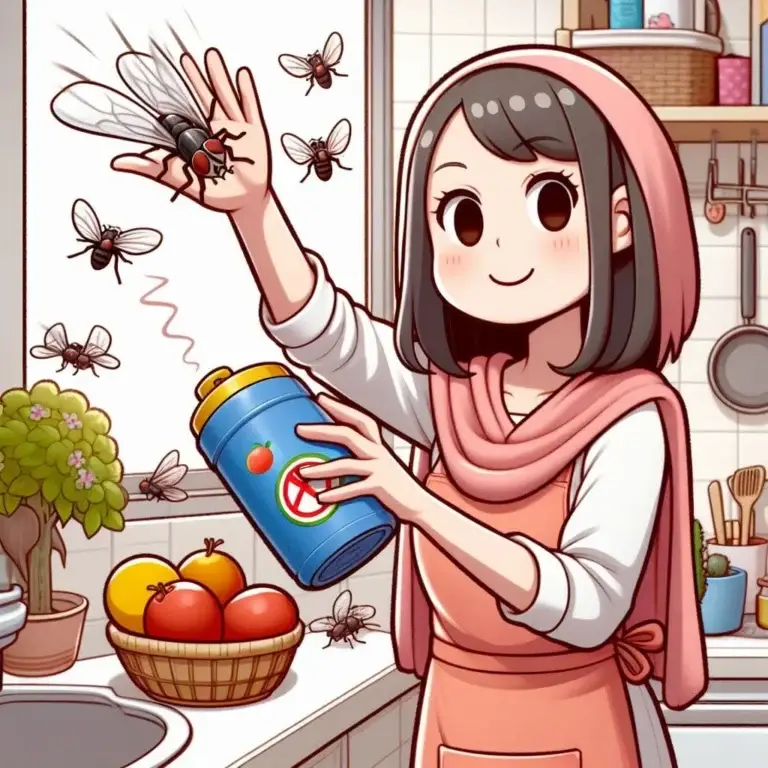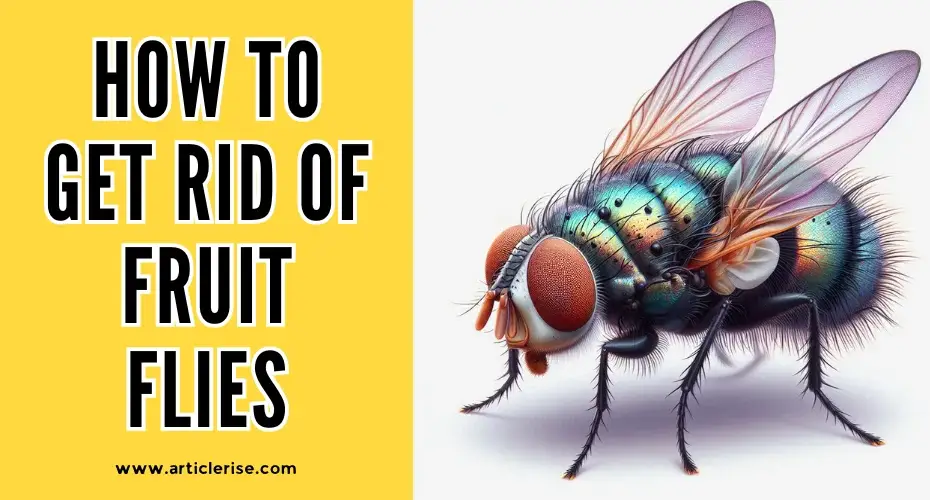Fruit flies, also known as Drosophila melanogaster, are tiny pests that can quickly become nuisances in homes and commercial settings. Understanding their behavior and implementing effective control measures is essential for eliminating these pesky insects and preventing future infestations.
Understanding Fruit Flies
Fruit flies are small insects measuring about 1/8 inch long, with red eyes and a tan or brown body. They are attracted to ripe or fermenting fruits and vegetables and sugary substances like juice, soda, and alcohol. Fruit flies have a rapid life cycle, with females laying up to 500 eggs near decaying organic matter. These eggs hatch into larvae within 24-30 hours, completing the life cycle in as little as 8-10 days.
Signs of Fruit Fly Infestation
Visual sightings of fruit flies buzzing around fruits, vegetables, or garbage bins are often the first indication of an infestation. Additionally, tiny larvae or eggs in food or on surfaces can confirm the presence of fruit flies. A foul, sweet odor emanating from overripe or rotting produce may also indicate the presence of fruit fly larvae feeding on the fermenting material.

Health Risks Associated with Fruit Flies
While fruit flies may seem harmless, they can pose serious health risks by transmitting bacteria and pathogens from contaminated surfaces to food. Consuming food exposed to fruit fly infestations can lead to food poisoning and gastrointestinal issues. In addition, individuals with allergies or respiratory conditions may experience exacerbated symptoms in the presence of fruit flies.
Prevention Methods
Preventing fruit fly infestations starts with proper food storage and disposal. Keep fruits and vegetables refrigerated or stored in sealed containers to deter fruit flies from laying eggs on them. Regularly clean and sanitize kitchen surfaces, sinks, and garbage bins to eliminate potential breeding grounds for fruit flies. Installing screens on doors and windows can also prevent fruit flies from entering the home.
Natural Remedies for Fruit Fly Control
Natural remedies offer a safe and effective solution when combating fruit fly infestations. One popular method is to create DIY fruit fly traps using everyday household items like apple cider vinegar and dish soap. The sweet aroma of the vinegar lures the fruit flies into the trap, while the dish soap breaks the surface tension of the liquid, causing the flies to drown. Another natural remedy involves using essential oils like lavender or peppermint, which can be diffused or applied to surfaces to repel fruit flies. Additionally, placing herbs such as basil or bay leaves near fruit bowls or kitchen counters can deter fruit flies with their strong scent. These natural remedies not only help eliminate fruit flies but also provide a chemical-free alternative for pest control.

Chemical Solutions
For severe infestations, commercial fruit fly sprays and insecticidal baits can effectively eliminate adult fruit flies. Foggers and fumigation treatments may be necessary for large-scale infestations in commercial settings. However, caution should be exercised when using chemical solutions, especially in areas where food is prepared or consumed.
Integrated Pest Management
Integrated pest management (IPM) combines various fruit fly control methods to achieve long-term results. This approach includes prevention measures, natural remedies, and chemical solutions tailored to the specific needs of each situation. Regular monitoring and inspections are essential for identifying potential breeding sites and taking proactive measures to eliminate fruit flies before they become a problem. In persistent infestations, seeking professional pest control services may be necessary to eradicate fruit flies effectively.
Tips for Effective Fruit Fly Elimination
Consistency is critical when dealing with fruit fly infestations. Regularly emptying and cleaning garbage bins, disposing of overripe fruits and vegetables, and maintaining clean kitchen surfaces can help prevent future infestations. Targeting breeding sites and using a combination of traps, baits, and repellents can effectively reduce fruit fly populations. It’s essential to regularly monitor traps and baits to ensure they remain effective and replace them as needed. If fruit fly infestations persist despite efforts to control them, don’t hesitate to seek professional help from a licensed pest control expert.
Conclusion
Fruit flies may be small but quickly become a big problem if left unchecked. By understanding their behavior and implementing effective control measures, you can eliminate fruit fly infestations and prevent future outbreaks. Whether using natural remedies, chemical solutions, or a combination, taking action against fruit flies is essential for maintaining a clean and healthy environment in your home or business. Remember to stay vigilant, address potential breeding sites, and seek professional help to keep fruit flies at bay.







